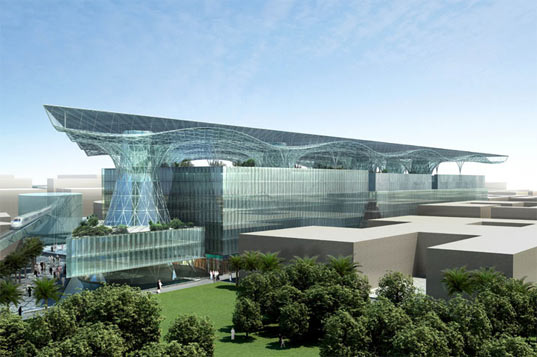UAE has the world's sixth largest proven crude oil reserves of 98 billion barrels and fifth largest natural gas reserves of 21.3 trillion cubic feet.
 Fossil fuels are non-renewable resources because they take millions of years to form, and reserves are doomed to be depleted much faster than new ones are being made. The production and use of fossil fuels raise environmental concerns. That is why a global movement toward the generation of renewable energy is well under way to help meet increased energy needs as well as to save our planet from global warming. A total of US $22 billion is being poured into carbon-free Masdar City project for completion of 2016 to which 1,500 plus environment-related business establishments are also scheduled to move in. Masdar Institute of Science and Technology (MIST) serves as an academic magnet that attracts scientists, researchers, and technology businesses to the UAE and the region while creating awareness among the trade visitors and clean energy professionals about its academic programs and research offerings that focus on green energy and sustainable technologies. About 250 students from more than 60 countries are currently enrolled at the institute with 60 professors. The center-piece of Masdar City, one of the most sustainable and low-carbon cities in the world, MIST provides students an unparalleled opportunity in the entire spectrum of research, from theory to applied research to commercialization in a single location, according to Dr. Jerald Yoo, a KAIST graduate of South Korea, who has been appointed as an assistant professor at the MIST by the recommendation of the Massachusetts Institute of Technology (MIT) since April 1, 2010. Dr. Yoo went on to say that the 10MW PV plant in Masdar City consisting of 87,777 panels of thin film and crystalline silicon technologies, and connected to the Abu Dhabi National Grid has so far generated approximately 36,000MWh of clean energy. The plant is a net exporter of energy to the grid after it meets the entire energy needs of the MIST in Masdar City. The success of the 10MW PV plant is a good example of how Masdar integrates research, development and innovation with investment, sustainable production, and deployment. Masdar Power is currently constructing the 100MW Shams One, one of the largest concentrated solar power plants of its kind in the world and the largest in the Middle East. Located at Madinat Zayed, 120km southwest of Abu Dhabi city, the project, is on schedule for completion towards the end of 2012. Masdar is Abu Dhabi's multi-faceted initiative advancing the development, commercialisation and deployment of renewable and alternative energy technologies and solutions. The company serves as a link between today's fossil fuel economy and the energy economy of the future - developing the "greenprint" for how we will live and work tomorrow. UAE, in the meantime, is taking initiative in reducing UAE environmental officials are determined to ban all plastic carrier bags by 2013 in a bid to reduce the amount of waste the country produces. In the case of 2011, at least 11 billion pieces of plastic bags are presumed to have used in UAE of which which 53.3 percent are not reused and end up in landfill sites. By 2013, UAE environmental officials want all residents to use alternatives like cotton or biodegradable plastic bags instead for "zero plastic bag use." The production and disposal of plastic adds to CO2 emissions, and the dumping of them contributes to pollution problems, as well as threatens wildlife.
MOST POPULAR IN LAST 24 HRS
MOST POPULAR IN LAST 7 DAYS
|